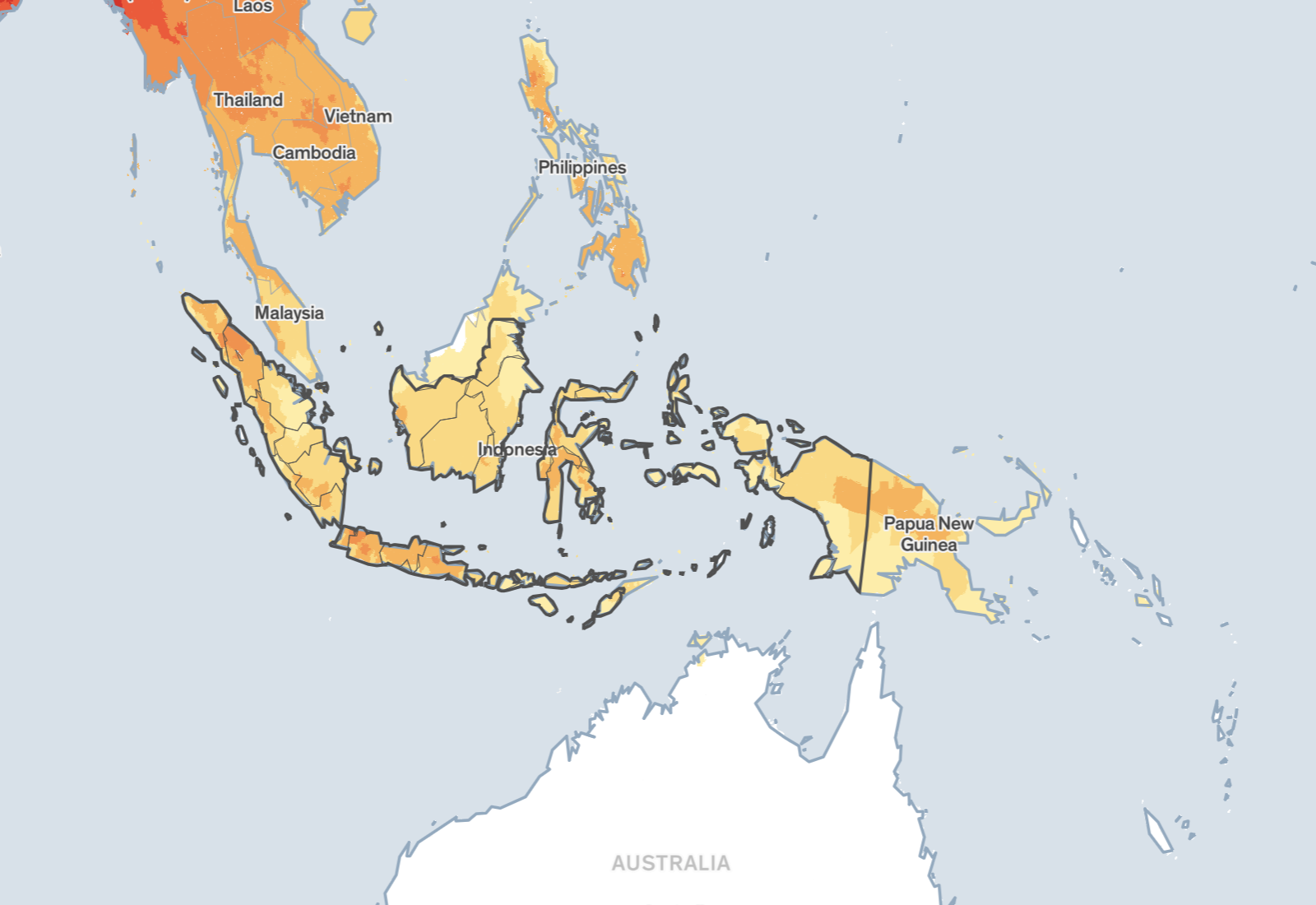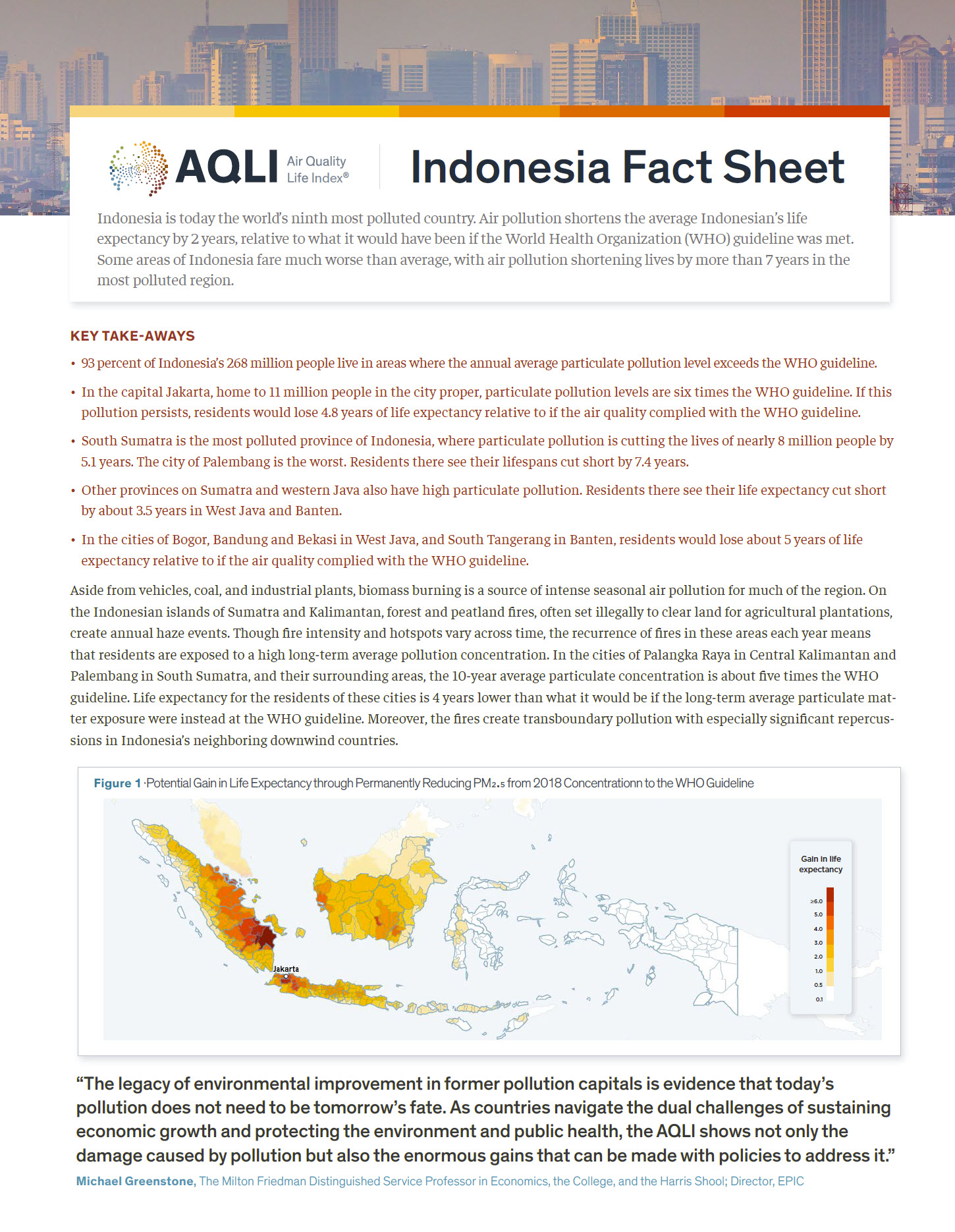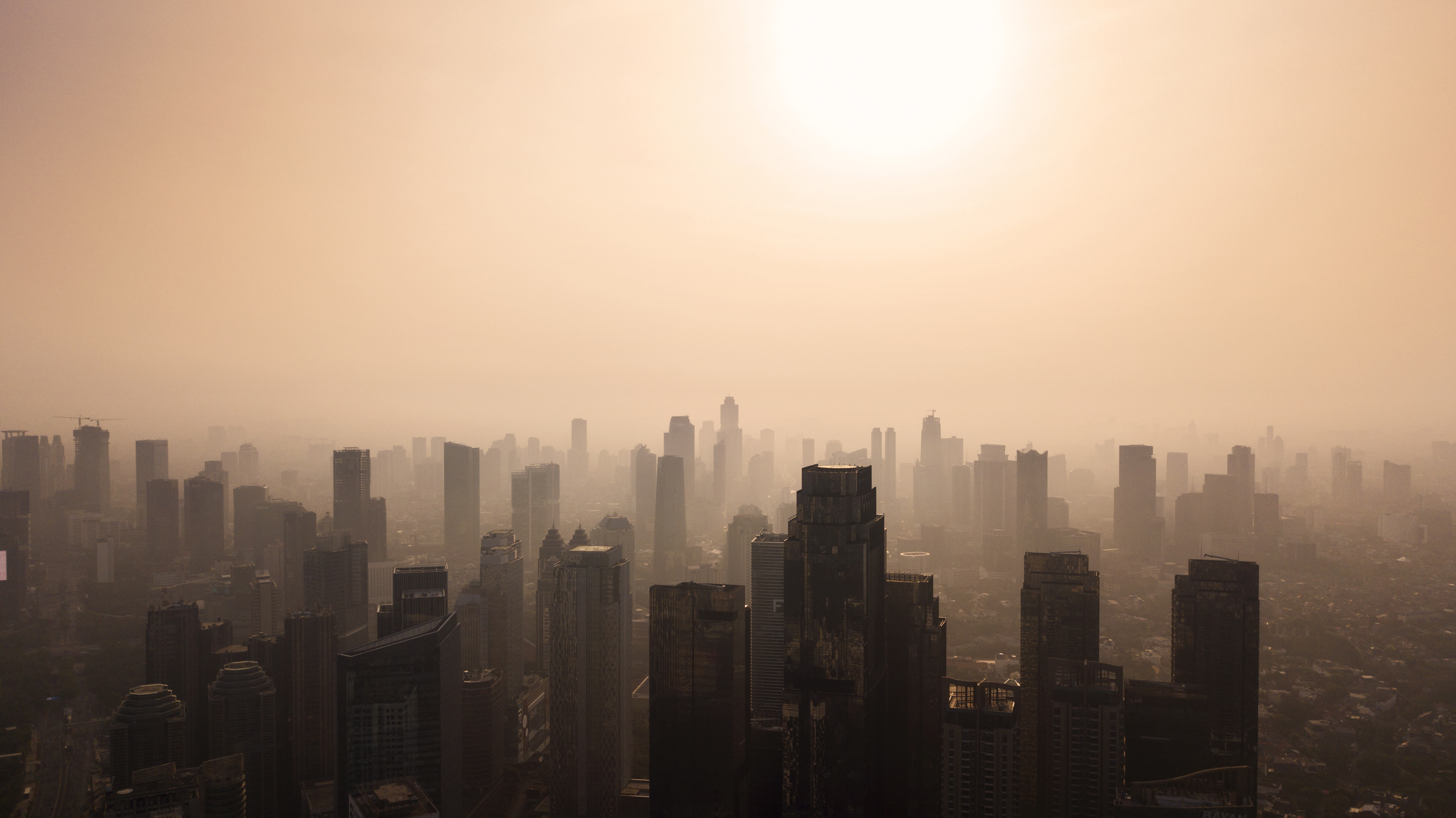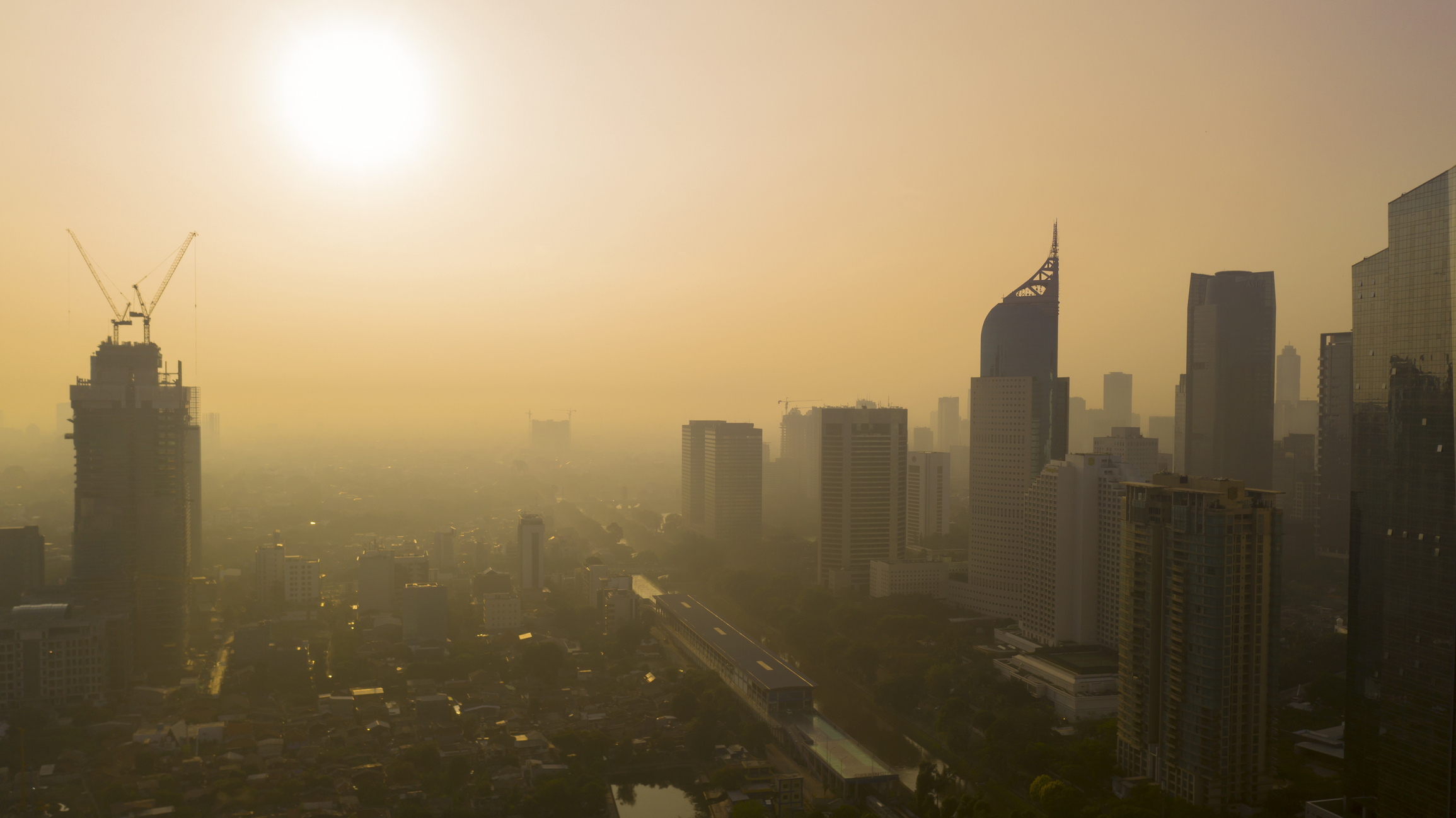Fine particulate air pollution (PM2.5) shortens the average Indonesian resident’s life expectancy by 1.4 years, relative to what it would be if the World Health Organization (WHO) guideline (5 µg/m³) was met [1]. Some areas of Indonesia fare much worse than average, with air pollution shortening lives by 2.9 years in Deli Serdang, the most polluted regency/city in Indonesia.
KEY TAKE-AWAYS
- Virtually all of Indonesia’s 272 million people live in areas where the annual average particulate pollution level exceeds the WHO guideline. More than half of the population lives in areas that exceed the country’s own national standard of 15 µg/m³.
- Measured in terms of life expectancy, particulate pollution is among the greatest threats to human health in Indonesia, taking 1.4 years off the life of the average Indonesian resident. In contrast, diabetes and kidney infections reduce average life expectancy by 1.2 years, while respiratory infections reduce life expectancy by 1 year.
- In the Special Capital Region of Jakarta—the most polluted province of Indonesia—10.7 million residents are on track to lose 2.4 years of life expectancy on average relative to the WHO guideline.[2]
Footnotes
[1] This data is based on the AQLI 2021 dataset. All annual average PM2.5 values (measured in micrograms per cubic meter: µg/m³) are population weighted.
[2] Special Capital Region of Jakarta is called Jakarta Raya in the AQLI data.











